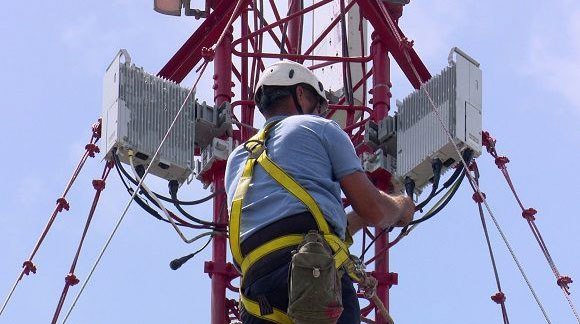The US blockade against Cuba has caused 85 percent of the Caribbean country’s telecommunications network to suffer from technological obsolescence, the Cuban Telecommunications Company (Etecsa) denounced today.
Etecsa’s commercial vice-president, Lidia Esther Hidalgo, told the daily Granma that the effect of the unjust and genocidal US blockade has led to higher prices for the company’s purchases by between 30 and 40 percent.
In contrast, revenues in foreign currency this year fell by 30 percent compared to the same period in 2023.
This means that the corresponding investments for the development of the network cannot be executed.
It also complicates the purchase of resources for the scheduled maintenance of equipment and the actions to be taken in the event of any problems that may arise.
There are more than 16,000 reports of interrupted telephones, three quarters of which are concentrated in Havana, she said.
The official also pointed out the low availability of sim cards for mobile telephony and terminal equipment (Nauta Hogar modem) and Alternative Fixed Telephony (TFA).
She argued that as a result of the effects of the national electricity situation about 450 radio bases are interrupted daily due to the lack of power backup.
Despite the complex situation facing the country, associated with financing and the direct impact of the blockade imposed by Washington, Etecsa is working to increase services.
As proof of this, he said, out of 7.8 million mobile users, 7.3 million are enabled to use the internet.
According to the parameters of the informal exchange rate, one gigabyte of mobile data is equivalent to 0.17 dollars, the lowest correlation in the Caribbean, according to specialised research centres.
The directive emphasised that the expansion of connectivity in scientific, educational, health and domestic trade institutions continues, as support for the country’s digital transformation process, one of the pillars of the government’s administration.
He explained that more than 54,000 business services have an average bandwidth of six megabits per second (Mbps) and work is being done to create and improve technological platforms for electronic payment.
Soon, she added, the Cuban application Transfermóvil will reach the figure of five million active clients, with an average of more than 40 operations per second.
She also said that the company remains committed to bringing telecommunications services to remote places, as evidenced by the 250 vsat (Very Small Aperture Terminal) satellite stations.
These actions, he said, are being carried out in the midst of a financial situation that makes it difficult to meet commitments with technology and service providers, as well as the development of investments for their maintenance, in addition to affecting resource replenishment times.




